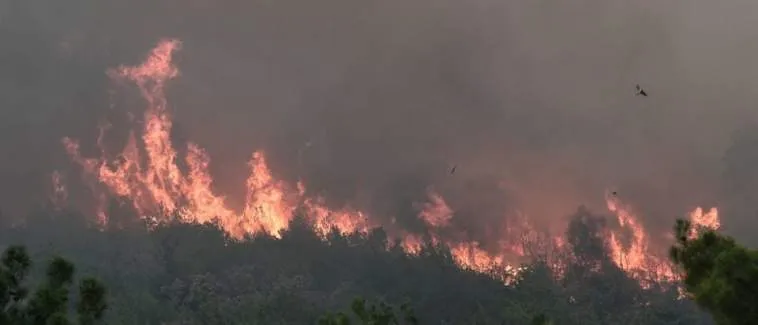(Daily Caller) Patrick T. Brown, a climate scientist, wrote Tuesday in The Free Press that he deliberately omitted the “full truth” from a paper he recently authored in order to increase its chances of publication in a prestigious journal.
Brown explained his decision-making in the piece, asserting that he overlooked truths in his work in order to make it more appealing to the editorial biases of leading journals like Nature and Science. Brown and seven other authors wrote a paper which examined the relationship between climate change and wildfire risks in California, and Nature published the paper in August 2023.
Brown stated that scientists hoping to advance their careers by getting published in leading journals are inclined to tailor their findings to align with the biases of editors and reviewers, a dynamic which “distorts a great deal of climate science research, misinforms the public and most importantly, makes practical solutions more difficult to achieve.”
“I knew not to try to quantify key aspects other than climate change in my research because it would dilute the story that prestigious journals like Nature and its rival, Science, want to tell,” Brown wrote of his paper. He asserted that reviewers and “editors of these journals have made it abundantly clear, both by what they publish and what they reject, that they want climate papers that support certain preapproved narratives—even when those narratives come at the expense of broader knowledge for society.” (RELATED: ‘Shady Deals’: UN Enlisted Google To Push Down Opposing Viewpoints On Climate Science)
WATCH: @SenJohnKennedy Destroys Dep. Energy Secretary – Exposes Climate Change Fraud By Asking One Question
KENNEDY: “If we spent $50 trillion to become carbon neutral…How much is that going to reduce world temperatures?”
SEC TURK: “This is a global problem.”
KENNEDY: “You… pic.twitter.com/eja5PJzM00
— Daily Caller (@DailyCaller) May 4, 2023
Brown further pointed out that the incentive structure he criticizes induces authors to overlook or downplay practical measures for mitigating climate-related risks, such as reasonable forest management policies. Instead, authors are inclined to highlight the problem of greenhouse gas emissions, which skews scientific analysis and facilitates legislation like the Inflation Reduction Act that takes aim at problems rather than facilitating solutions, Brown asserted in the piece.






